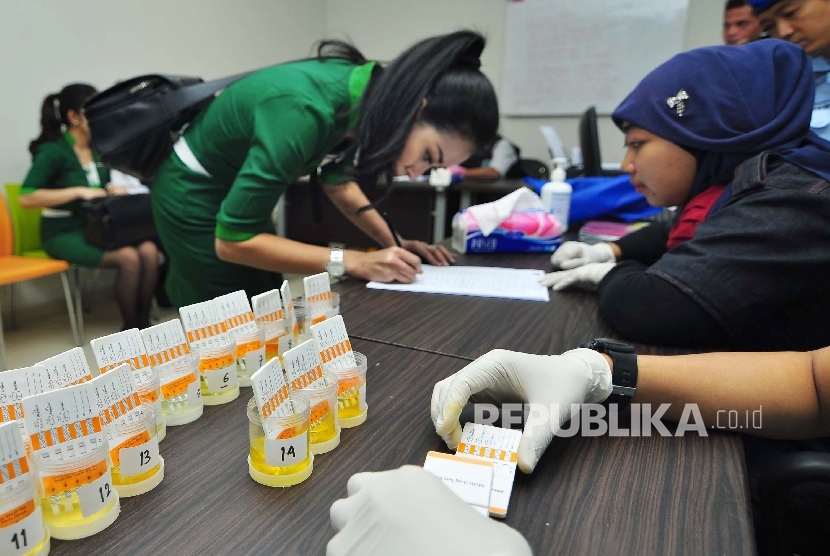REPUBLIKA.CO.ID, KUTA -- Transportation Minister Ignasius Jonan has called for a strict medical checkup on drivers of land, air and sea public transportation services to enhance the safety of Lebaran Islamic holiday travelers.
The medical checkup for ferry, boat and ship captains had been launched on June 18, the minister said when inspecting the integrated Lebaran Monitoring Command Post at Ngurah Rai International Airport, Friday evening.
The air and land transportation services' medical checkup began on June 24, he added.
The number of aircraft for this year's Lebaran is estimated to increase by 10 to 11 percent, sea vessels between one and two percent, while land vehicles are set to rise between two and three percent.
Some 4.6 million passengers are expected to travel by air, an increase of 7.62 percent from 4.3 million last year.
The number of travelers using ferries, ships or boats is estimated to reach 910,191 people, up 2.9 percent from 883,681 last year.
Preventing traffic jams and improving public safety are the ministry's priority programs for Lebaran this year, as ordered by President Joko Widodo, Jonan said.
Last year, some 700 Lebaran travelers were killed in traffic accidents, particularly those involving motorbikes.
The number of Lebaran travelers using motorbikes will increase by 50 percent to 5.6 million, from 3.7 million last year, the ministry has estimated.
He also warned of bad weather as Indonesia is experiencing a wet dry season due to La Nina, particularly in North Sumatra, West Sumatra, South Sumatra, and Lampung, in addition to western Java, North Kalimantan, East Kalimantan, and Central Kalimantan. West Kalimantan, South Kalimantan, North Sulawesi, and Central Sulawesi, apart from Southeast Sulawesi and Papua, are also experiencing the effects of La Nina.
Indonesia, which has the largest Muslim population in the world, will celebrate Lebaran or Eid El Fitr on July 6.
They usually spend the Islamic holidays with relatives in their hometowns, triggering a massive exodus from the cities.


